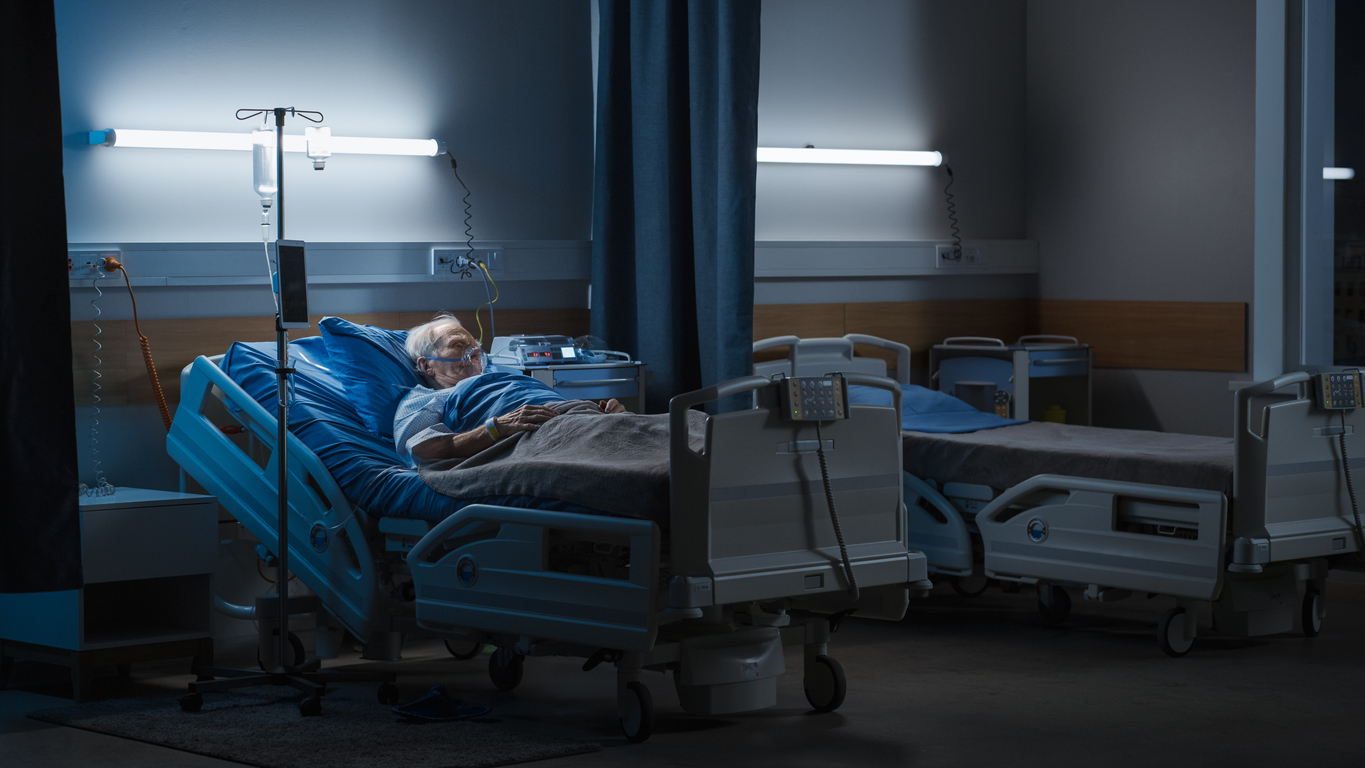Nurses have explained why they are backing their colleagues’ right to strike, as junior doctors walk out over pay and working conditions.
The 96-hour strike is taking place between April 11-14 and will involve all junior doctors in England.
It has echoes of the recent nursing strikes – many of the same problems about recruitment and retention have been highlighted by doctors’ union the British Medical Association (BMA).
In response to a now-viral social media post by a junior doctor showing a payslip from 2003 and 2023 being almost identical, to demonstrate why he was striking, many nurses took to social media to express their support.
One such nurse, Joanne Morrell, told Nursing Times her support, particularly for doctors at her hospital in Huddersfield, came from a place of “camaraderie”.
“We’re all one big team. Everyone in the hospital plays such an integral role,” she said.
“All of the doctors I work with, and are friends with, are all on my side and say we should be paid better. So of course I’m on theirs.
“I know they’re not just doing this for the money. We want the NHS to work, and are passionate about patient care – I can’t understand why anyone wouldn’t support them.”
“Our pay claims are part of the same struggle”
Siobhan Aston
Ms Morrell is an intensive care nurse of five years and has previously worked in a range of other areas including oncology and surgery.
She said she had witnessed “how incredibly hard” junior doctors work and “how much stress they’re under”, including those at the very early stages of their career.
“For example, on a night shift on a surgical assessment unit, that first year doctor was running backwards and forwards, backwards and forwards, between two wards – vascular and A&E – and people were constantly bleeping them,” explained Ms Morrell.
“The amount of times I’ve talked people out of leaving because they’re under so much pressure, breaking down, saying they just can’t do this.
“It just makes me think: how can we not be paying them and respecting them for the amount of time they’ve spent on this and the job they do?”
She noted how when junior doctors were under pressure it had a knock-on effect for nurses, and vice-versa.
Meanwhile, she said she also hoped that the junior doctors’ pay campaign could help nurses’ cause for fair pay.
The BMA is asking for a 35% pay rise for junior doctors to account for money lost by inflation, a figure the UK Government has said is unreasonable.
Meanwhile, NHS nurses in England are currently voting on a pay offer that would provide a 9.3% consolidated pay increase between 2021-22 and 2023-24 for a nurse in the middle of band 6, as well as a £2,061 (5.8%) one-off bonus.
“I’d hope that us supporting the junior doctors will also help our cause, given the pay offer we’ve just had – I know I’m disappointed and voted to reject,” said Ms Morrell.
“You’d hope if the doctors do succeed, hopefully the government will take us a little more seriously.”
Illustrating the low pay of junior doctors, the BMA calculated that three doctors performing an appendix removal would earn just £66.55 between them.
Part of the reason, the BMA said, that junior doctors should be paid more is to prevent them fleeing the NHS to work abroad or in the private sector for better pay.
“We’re all one big team. Everyone in the hospital plays such an integral role”
Joanne Morrell
Ms Morrell said part of her support for the junior doctor strike was to stop exactly this happening: “The amount of responsibility versus pay, it’s not reflected and it’s why people are leaving.
“I’m so proud we’re a country that provides care and treatment regardless of how much you earn, and I don’t want to lose that.
“If they are being offered better pay elsewhere, I don’t blame them.”
Siobhan Aston
Siobhan Aston, a nurse of seven years, is also passionately supporting the doctors’ strike.
Ms Aston told Nursing Times: “Both of our professions suffer from critical staff shortages, as both doctors and nurses leave for the private sector or even to work abroad for better wages and work-life balance.
“This puts even more pressure on the remaining workforce which leads to people quitting the NHS.
“To reverse this trend both doctors and nurses need pay restoration.”
As with Ms Morrell, Ms Aston said she too believed the two professions supporting each other would be mutually beneficial.
She added: “Our pay claims are part of the same struggle.
“If they win, it will set the tone for any future industrial action for nurses also. We need to win, the future of the NHS depends on it.”
BMA junior doctor committee co-chair Dr Vivek Trivedi said the union had been in a formal dispute with the government since October and that its aim was “for full pay restoration – to reverse the more than 26% real terms pay cuts”.
He said junior doctors were striking due to the government’s “repeated inaction” and failure to put forward a pay offer.
“We would still be willing to suspend strike action this week if the secretary of state makes a credible offer that can be the basis of negotiation,” said Dr Trivedi.
In a statement yesterday, health and social care secretary Steve Barclay said the government would hold talks with the BMA if it “significantly” lowered its pay demands and cancelled strikes.







